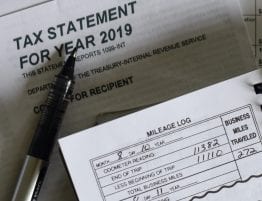
The IRS has released the 2019 Employee Plans Compliance Resolution System (EPCRS) that allows businesses and organizations offering retirement plans to identify and correct mistakes in the form and operation of many retirement plans, including SEP and SIMPLE IRA. A retirement plan may lose its tax benefits if it’s not properly prepared.
The 2019 EPCRS is an improvement upon the previous year’s EPCRS, and according to the IRS, makes it easier to fix certain plan document and operational failures, including plan loan issues, without having to file a VCP submission to the IRS.
Below are the key points of the 2019 EPCRS and the highlights of major changes made by the 2019 Revenue Procedure. SHRM shares:
“EPCRS Programs
Three programs comprise EPCRS:
Self-Correction Program (SCP)
SCP is a means of correcting a retirement plan’s operational failures, and now certain plan document failures, without involving the IRS. To use SCP, an employer must correct the failure in a prescribed manner and then document the correction in a detailed memorandum. Failures that can be corrected by SCP are divided into ‘insignificant’ failures, which can be corrected at any time, and ‘significant’ failures, which must be corrected within a certain time period, generally by the last day of the second plan year following the plan year in which the failure occurred.
Voluntary Correction Program (VCP)”
VCP requires filing an application and paying a fee to seek IRS approval of the correction. The advantage of VCP is that it can be used to correct a broader range of failures than SCP, including certain additional plan document problems and ‘significant’ failures not corrected within SCP’s required time period. Effective April 1, 2019, all VCP submissions must be made electronically.
Audit Closing Agreement Program (Audit CAP)
Unlike SCP and VCP, Audit CAP is initiated by the IRS and applies to plans under examination. Audit CAP involves taking IRS-approved corrective actions, paying a negotiated penalty, and entering a closing agreement with the IRS.
Regardless of which program applies, EPCRS generally requires full correction of the failure, which means the impacted participants and the plan must be made whole.
Following are some of the significant changes the 2019 RP made to EPCRS.
Expansion of SCP
The 2019 RP expands SCP in several important ways, which will facilitate compliance for plans while reducing applicable costs and burdens. Following are brief descriptions of each significant development to SCP.
- Correction of certain plan document failures. Under the 2019 Revenue Procedure, if otherwise eligible to correct under SCP, a sponsor of a Section 401(a) – including Section 401(k) – or 403(b) plan may correct certain plan document failures, other than the initial failure to adopt a qualified plan or the failure to adopt a written Section 403(b) plan document timely. Plan document failures under SCP are always treated as significant failures, and as such, may be corrected only if a plan is subject to a favorable IRS determination letter and the correction is made within the SCP correction period. As noted above, significant failures generally must be corrected by the last day of the second plan year following the plan year in which the failure occurred.
- Correction of certain plan loan failures. The 2019 RP provides expanded opportunities to resolve certain plan loan failures under SCP. The following plan loan failures may be corrected under SCP:
(1) Errors relating to the failure to repay a plan loan according to plan terms.
(2) The failure to obtain spousal consent for a plan loan as required by plan terms.
(3) The failure to limit the number of plan loans to a participant, as required by plan terms. - Correction of certain operational failures by plan amendment. The 2019 RP provides that an operational failure may be corrected under SCP by a plan amendment to conform the written plan to the plan’s operation if three conditions are satisfied:
(1) The plan amendment would result in an increase of a benefit, right or feature.
(2) The increase in the benefit, right or feature is available to all eligible employees.
(3) Providing the increase in the benefit, right or feature is permitted under the Internal Revenue Code and satisfies general SCP correction principles. - Spousal consent. The 2019 RP provides that, in addition to the VCP, failures to obtain spousal consent may also be corrected under SCP or Audit CAP.
- SCP examples. To further facilitate correction under SCP, the 2019 RP states that the IRS intends to provide additional examples illustrating whether an operational failure is insignificant. It is expected that a link to these examples will appear on the Correcting Plan Errors webpage on the IRS website.
Electronic VCP Submission
The 2018 RP set forth new electronic VCP submission procedures, including the use of the www.pay.gov website to pay applicable user fees. The 2018 RP provided for a transition period–through March 31, 2019–during which plan sponsors could file VCP submissions with the IRS either electronically using the new submission procedures, or by filing a paper VCP submission in accordance with the previous procedures outlined in Revenue Procedure 2016-51. The 2019 RP eliminates the transition rule that permitted paper VCP submissions, and requires all VCP submissions to be made electronically using www.pay.gov.
The 2019 RP states that the IRS and Treasury Department will continue to update EPCRS. For instance, it states that the IRS is currently developing guidance on permitting the correction of overpayments under SCP.”
Fill out the form for a free and confidential consultation.








